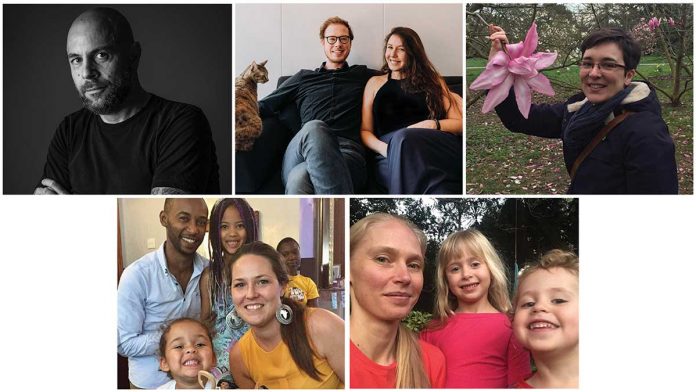PLANET EARTH – Although Manitoulin has seen relatively few confirmed cases of COVID-19 to date, many people with connections or roots on the Island have found themselves, their family or their friends scattered around the world dealing with the effects of the virus. The Expositor contacted a selection of ‘Islanders abroad’ who discussed their experiences in other countries.
Amanda (Flanagan) Mwangi, Kenya (formerly of Gore Bay)
Amanda (Flanagan) Mwangi is well-known on Manitoulin Island and several years ago she established The Kuku Hut, a fair trade gift shop that features artisan work from Kenya, where she now makes her home with her husband Denis and her children Milaka (in Grade 4) and Zuri who is still in Kindergarten.
Ms. Flanagan and her family have been on lockdown in her family’s apartment for more than five weeks. Her children are at the beginning of online learning. “There is a three-week school break that takes place here in Kenya, so the children haven’t really lost a lot of school time as a result,” she noted. “They are in a private school, a Waldorf school, with very small class sizes of around 19 kids. Teachers can manage it better and the children receive a lot of one-on-one.”
There are about 19 apartments in the building where the family lives, so they are near other families, but Kenya has instituted some very strict physical distancing rules. “Everyone must wear a mask when they go out,” she said. “There cannot be more than two people in a vehicle together at one time—or half the seats filled. There are mandatory fines and jail time for those who do not follow the rules.”
Both Ms. Mwangi and her husband lost 100 percent of their income when the full impact of the pandemic hit on March 6. “Luckily we have some savings, so we are getting by,” she said. But she said she fears for the poor living in the slums. “Those people source daily in order to eat.” She noted that roughly 98 percent of those living in the slums share communal toilet and shower facilities at the end of the corridor. “There are heavily congested areas with very poor hygiene.”
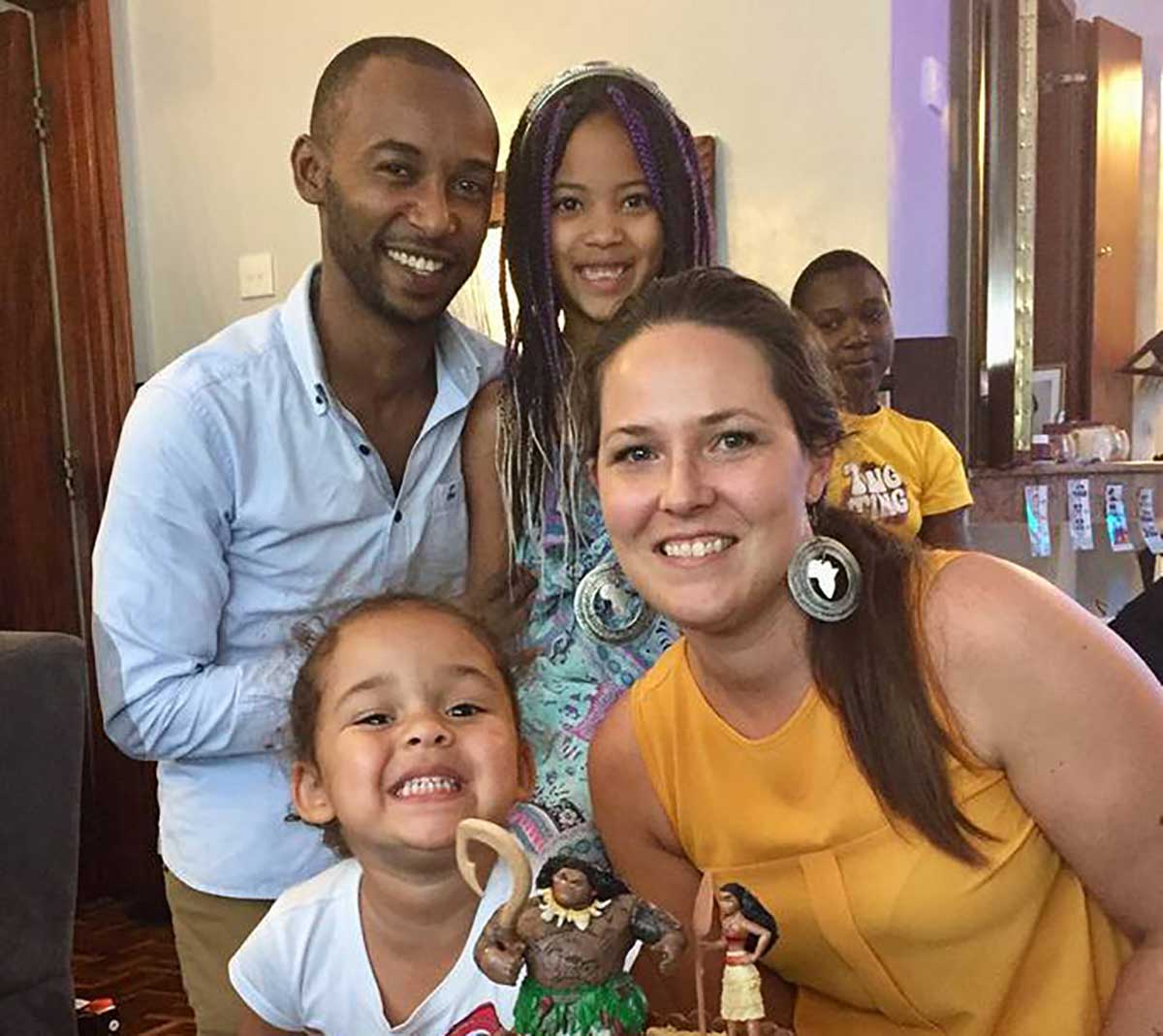
It is common in Kenya to have a housekeeper come in regularly to assist with the cleaning, but the Mwangi family had to make her stay at home as she lives in the slums. Their housekeeper is among the luckier ones, however, as they are still providing her with some money during the pandemic.
With two young children in lockdown the days can be tough. “We can’t let them go outside,” she said. But the addition of a hammock on the balcony of their apartment has helped to ease that strain.
Despite the lockdowns and concerns, Ms. Mwangi said she has confidence in the country’s health care system.
“I’m proud of Kenya,” she said. “Schools closed with under 10 infections. There are local county lockdowns and roadblocks to keep people within specific areas. They closed down the international airport and now local flights are grounded.”
“I feel like we might be ahead of this thing here,” she said. “African people (living in Africa) have been dealing with disease their entire lives. TB, hepatitis etc. The BCG vaccine is still given at birth whereas my generation did not have that in Canada. I think the nation is overly cautious but like everywhere, we still have those individuals whom will not take it seriously. We can really only hope for the best and trust the scientists and medical profession right now.”
Leaving Kenya was not a viable option for the family, she pointed out, as travelling to Canada presented major hurdles. “My husband only has a visitor’s visa, but we have never really felt the need to travel.” She went on to explain that there is a significant expat community in Kenya and very few of those who had an option elected to leave. “In some cases their companies insisted that they leave,” she said. “Nobody from our international friends group has left.”
Ms. Mwangi said that she is trying to come up with a way to continue the Kuku Hut work, as the income it provides for local artisans is needed more now than ever.
Esther Anstice, England (formerly of Tehkummah)
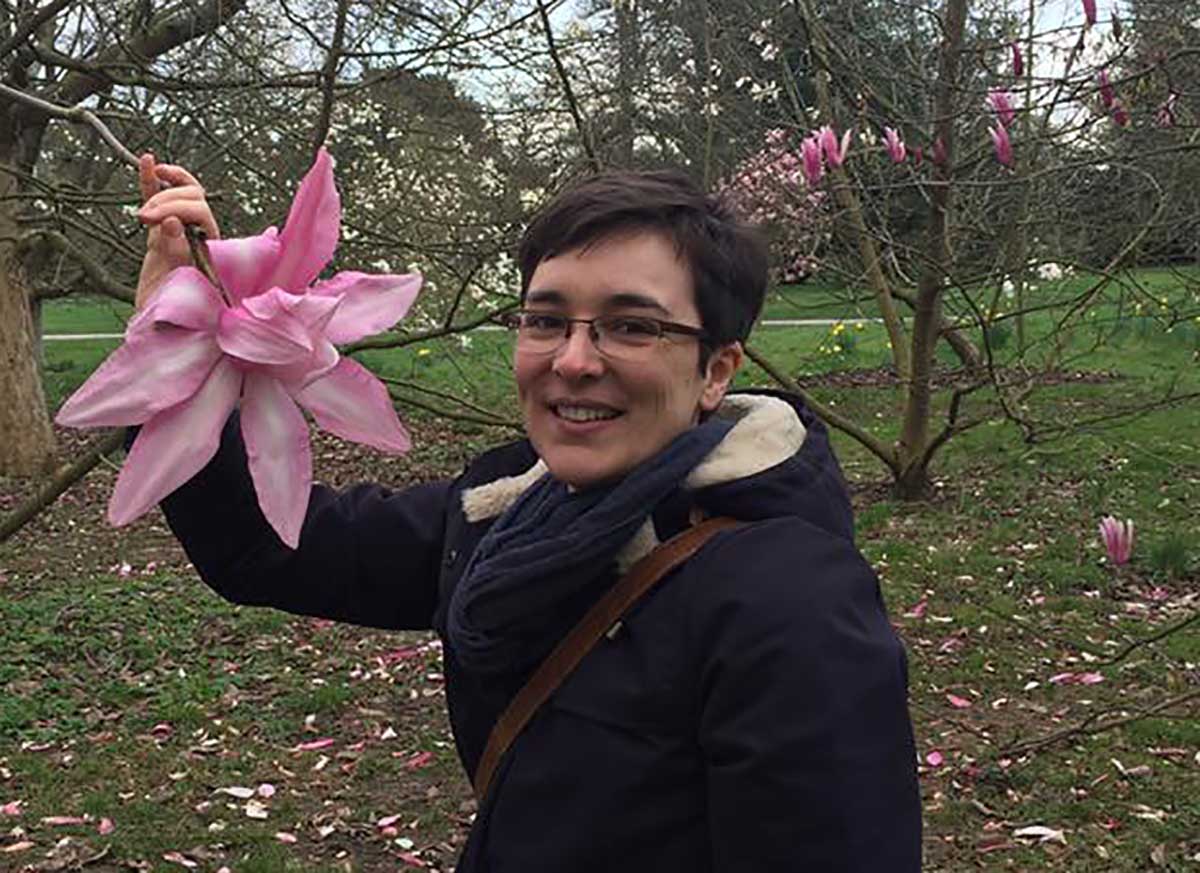
“It’s quiet, really, really quiet,” said Esther Anstice of life in London, England these days. “It’s very strange.” Ms. Anstice, whose family operates a Tehkummah dairy farm, is serving as the deputy verger at London’s venerable St. Paul’s Cathedral.
Back in medieval times the verger (spelled vergir in England) was a lay person who led the procession of acolytes, robed lay leaders, choir and clergy into an Anglican Church. Even onto today, the verger walks at the front of the procession bearing a symbolic rod-like mace. In the old day that rod was used to keep back animals, ruffians, and ne’er-do-wells who might interfere with the procession, but those rough and ready days have long since passed.
Not that there are any processions to lead or hordes of ne’er-do-wells (or even overeager faithful) to beat back in these days of COVID-19. “The church is closed,” said Ms. Anstice as her only comment on the cathedral she serves.
While things are quiet in the streets of London, there are still some folks out and about, just not in the numbers familiar to one of the most dynamic and historic capital cities of the world—seat of a once globe-striding British Empire where the “sun never sets.”
“It is a city of nine and a half million people,” said Ms. Anstice, “so there are people about, but almost everyone is doing their best to maintain a safe distance.”
Still, she notes, “the police are having to break up the odd sunbathing party in the parks.” There goes another cherished myth of a city widely famed for its misty atmosphere.
England is somewhat ahead of where Canada is on the pandemic curve and life is approaching something a bit closer to normal, especially in the supermarkets.
“At first it was a bit crazy,” recalled Ms. Anstice, “there were a lot of empty shelves in the stores, you couldn’t find bread, eggs or loo roll (Ms. Anstice’s vernacular has gone a bit native during her time in Blighty, in the latter she is referring to toilet paper). “But the government and organizations put out a lot of advertisements saying ‘listen, if you just buy what you need for now, we will have enough for all of you.’ After that things settled down and you can find whatever you need in the stores now.”
Ms. Anstice suspects that she might have contracted the virus at some point, having suffered a fever and a nasty dry cough. “But there was no way to get tested, maybe I didn’t have it,” she said, going on to count blessings. “I’m fine now. I am safe with friends. I have a job.”
The pandemic has magnified the distance that lies between Ms. Anstice and her family, however. “It has been 5,000 miles and an ocean between us,” she said, “but that 5,000 miles seems so much farther. It’s scary.”
But Ms. Anstice notes that she is happy to live in a country like the UK or Canada where she can pick up the phone with confidence and call for an ambulance if she needs one. She notes that the National Health Service in England has not been overwhelmed by the virus. She said that she is now more concerned about how the community will recover in terms of mental health in the aftermath of the pandemic than even the economic recovery.
She noted the incredibly inspiring story in England right now concerning Captain Tom Moore, a 99-year-old veteran who has raised an astounding 20 million pounds for the NHS battle against COVID-19 by walking a thousand times across his garden.
“A saying I am hearing these days that I really like is ‘our parents gave their lives to protect our freedoms, now we can give up our freedom to protect their lives’,” she said.
“I have three jobs right now,” she said. “Stay home, wash my hands and love my friends.”
Medeine Tribinevicius, South Africa (formerly Tehkummah)
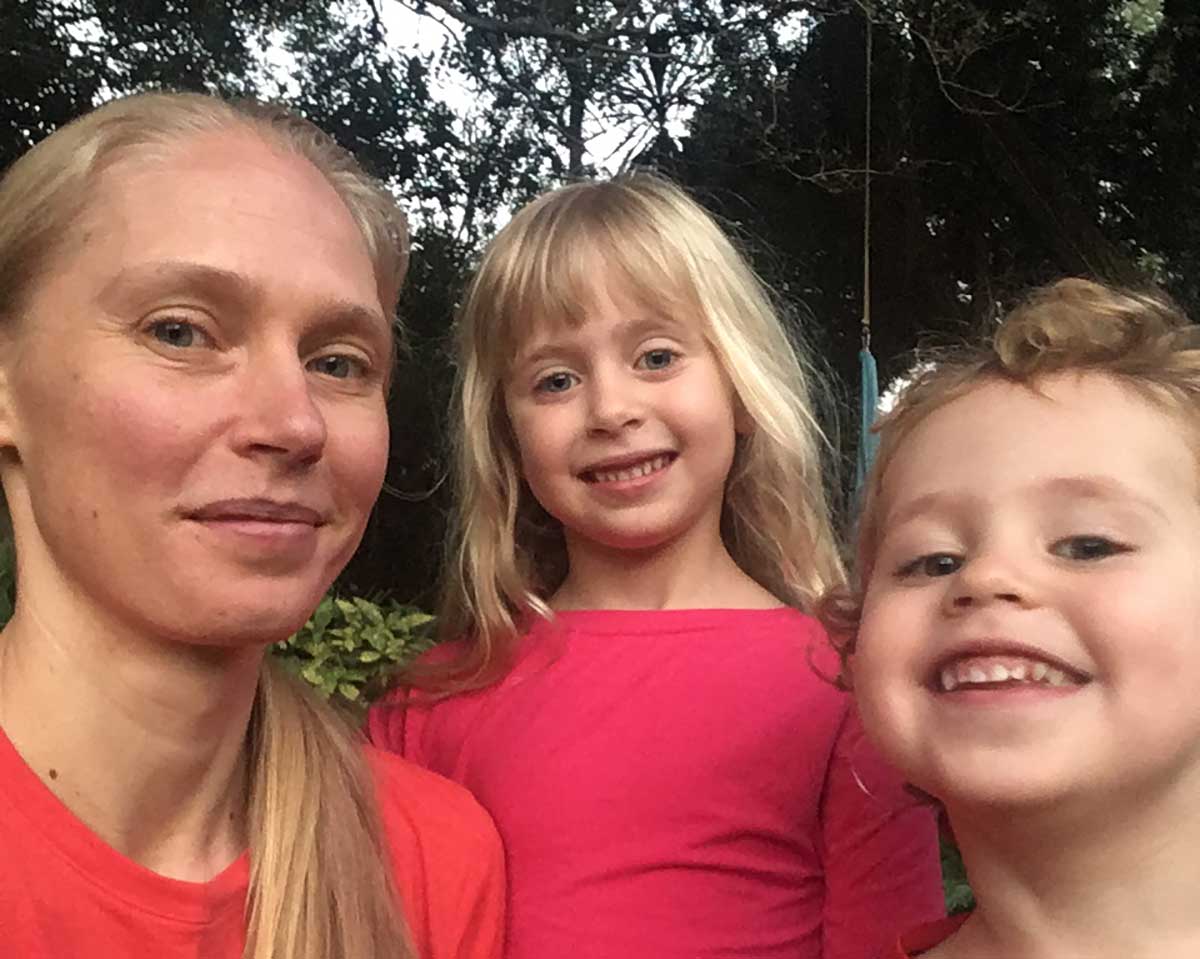
Medeine Tribinevicius is currently in lockdown with her husband Richard and two children, aged 5 and three in the South African capital of Johannesburg, but their isolation does contain a few mental health perks that help to ease the experience.
“We are fully locked down as well,” said Ms. Tribinevicius. “We are very fortunate in that we live in a sort of communal situation.” She went on to explain that their landlord lives on the same property and they have a big garden for the children to burn off the copious quantities of energy to be found in tiny folk. “Our landlord also has his small grandson, so the three of them are able to play together,” she said. Still, the children do seem to be missing their school. The national lockdown started on March 27 in South Africa, but schools closed earlier on March 18. “The children miss their school, and so does their mother,” she laughed. “The school closure was going to be for three weeks but it has now been extended for, well, to be announced. The school is sending home video assignments so they don’t fall far behind and so is their ballet teacher.”
Ms. Tribinevicius, like many folks across the globe, is currently working from home. A former journalist (who once worked at The Expositor and the Toronto Star among others) is now trying to balance the added roles of school teacher and ballet teacher to her work helping to run an artist’s photography studio. “It’s basically a small business, I do everything from helping with production to peeling stickers off frames, as well as helping with strategies to grow the business. It’s a lot like journalism really,” she laughs.
Her husband Richard is a journalist, so like here in Canada listed as an essential worker. “He walks to and from work every day, so we kind of have a chance to spell each other off,” she said.
“Only one person in the family is allowed to leave and then only for essential things like medical appointments and food,” said Ms. Tribinevicius.
Although masks are not mandatory in South Africa, Ms. Tribinevicius said that they are advised. “There is a lot of crowding here and a large percentage of the population is high risk,” she said, noting that tuberculosis and HIV are prevalent. In fact, the health situation for many communities in South Africa is much like that of Indigenous peoples in remote and Northern Canada, except with much denser communities that multiply the risks from the pandemic’s spread somewhat exponentially.
“The First Nation communities have the advantage of being more remote,” she said.
Ms. Tribinevicius said that deciding not to leave was a difficult one, not so much because of concerns about where she is living, but more about her family back home.
“My parents are in their late 60s, early 70s, so of course I want to be closer to them,” she said. “It’s hard not to be with family, but then there are the concerns about flying through airports, it’s safer for them living on Manitoulin Island than it would be with us going there.”
Ms. Tribinevicius is registered with the Canadian embassy and the embassy keeps emailing to ask if they want to fly out to Canada, but she said that she feels the bigger risk would come from travelling. Currently the flights are being put together with a disparate group of internationals as there are not enough Canadians in the country now to fill a plane on their own. “The last one is set to leave soon,” she said.
Technology is helping to lift some of the strain of distance, with video conferencing making a big difference in keeping in touch. “At least we don’t have to wait for letters,” she laughed, “at least not yet.”
Lauren McCormick, Colombia (formerly of Little Current)

Photographer Lauren McCormick has relocated to Medellin, Colombia in recent years and shoots weddings around the world. However, that business has vanished during the pandemic. Colombia has been on a strict lockdown for a month and Ms. McCormick and her partner have only left the house once for essentials, instead relying on a start-up delivery service for most of their needs.
“I’m really trying to stay positive but some days are better than others,” said Ms. McCormick.
Fortunately, her partner has been able to work from home to help cover their expenses during this time. Ms. McCormick would ordinarily be travelling the world at this time to shoot destination weddings and spend the summer months in Canada. Instead, she has been making use of this downtime to work on the back-end of her business such as refreshing her website and revisiting the way she does business.
“Eric and I actually started a second business that’s still in the idea phase, for 100 percent sustainable clothing made with alternative fabrics like hemp and linen that are not mixed with cotton,” said Ms. McCormick, adding that she will be announcing more details about the venture on her photography social media accounts when it takes off.
Colombia’s strict nationwide lockdown has led to interesting results. Just shy of 3,000 people are infected in that country, with roughly 130 deaths. These figures are below Ontario’s reported figures, and far lower when accounting for Colombia’s higher population and population density than Ontario.
Colombia’s case rate expresses a similar curve to that of South Korea, a country praised for its response to the virus. This was partly made possible because Colombian security forces have been actively enforcing the restrictions and citizens have been complying with their directives.
“There’s police patrolling the streets and ticketing people, checking their IDs to see if they’re out on their allowed days. They’re also checking IDs at grocery stores, pharmacies and other essential places that are still open,” said Ms. McCormick. “It’s another world, but I do think it’s a great thing because it seems like it might be stopping the spread of the virus.”
Giovanni Capriotti, Manitoulin lover (formerly of Rome)
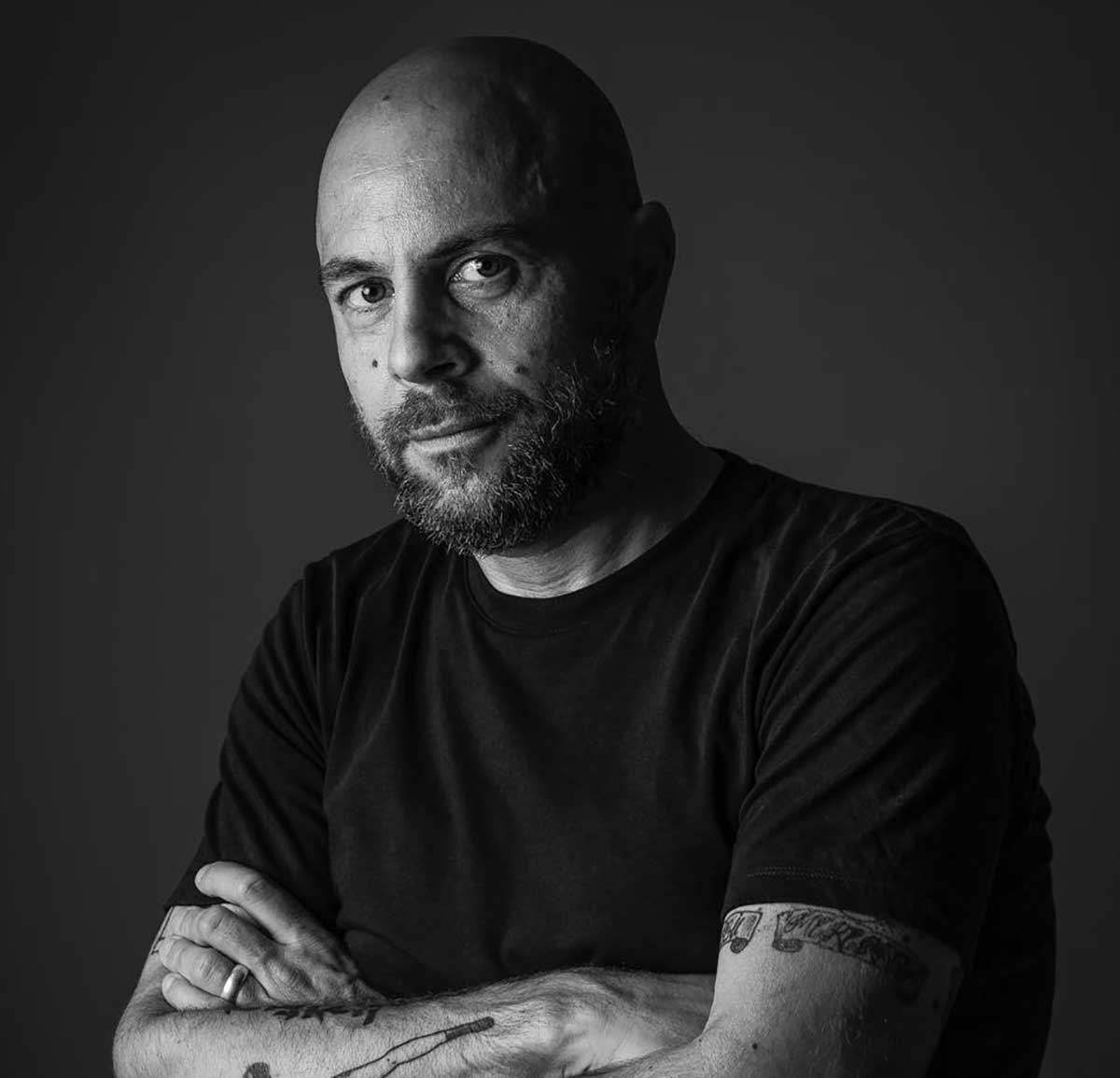
Former Expositor photojournalist Giovanni Capriotti is from Rome, in the region of Lazio, within one of the harder-hit countries in the world, Italy. He still has many family members and friends living there but fortunately, the northern portions of the country have been impacted far more than those at the southern tip of the boot. Lazio is roughly in the latitudinal centre of the country.
Mr. Capriotti’s mother, 76, and father, 82, have been within their home except for one trip his father made to pay bills (though those have all since been suspended in the country). All trips outside the home have to be approved by the Italian government through filling out forms in advance.
Convincing his parents—especially his mother—to stay home took a bit of tough love at the beginning, especially when it came to religious gatherings.
“I had to tell my mom, ‘you don’t go to church, there’s no need. You pray at home,’” he said, adding that he has been urging his friends to stay home as well.
Mr. Capriotti said he got used to the distance because he would not be able to visit his family even if he was back home in person. He has been keeping in touch with them through regular virtual visits. Mr. Capriotti praised the Canadian response to the virus, which might initially look like a big reaction to a smaller number of cases, but he said that has been the key why Canada has not been as hard-hit as Italy.
“I believe all categories of society need to be protected,” he said. “It’s good to approach it like that, which is saying two or three people is an outbreak. That is preventing the real outbreak and should have happened in Italy in the beginning.”
Mr. Capriotti’s wife and daughter are in Canada, but his wife’s family is also abroad in London. His work as a freelancer has become very limited but fortunately Mr. Capriotti also works as a photographer at a Toronto university so he has some income remaining.
“It’s unpredictable. I would have never expected to face something like that in my life, but we’ve got to do it somehow,” he said.

